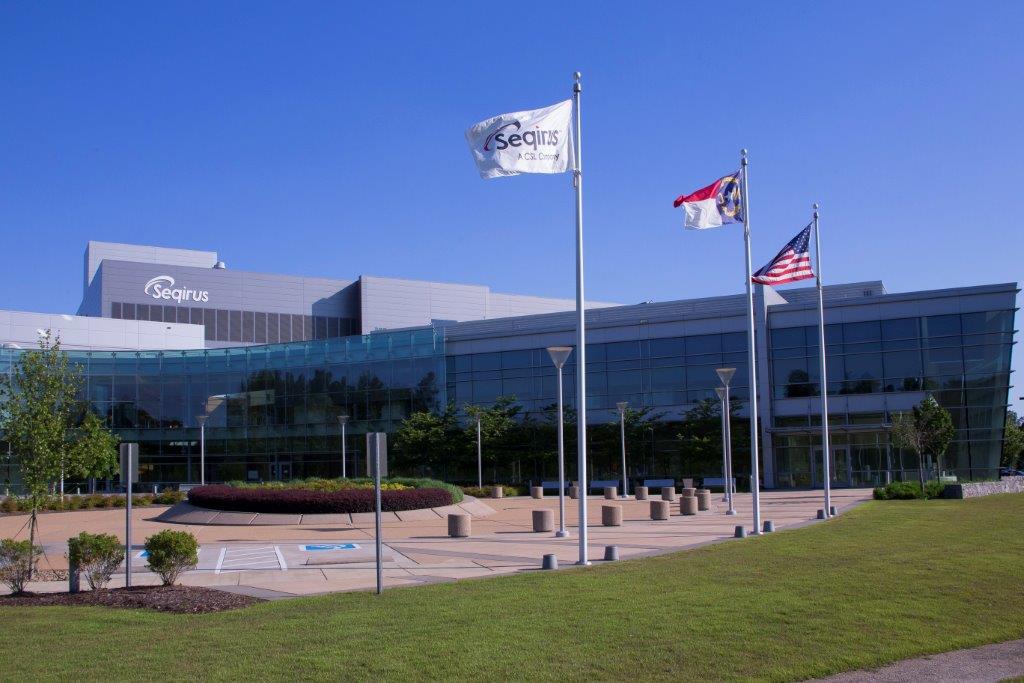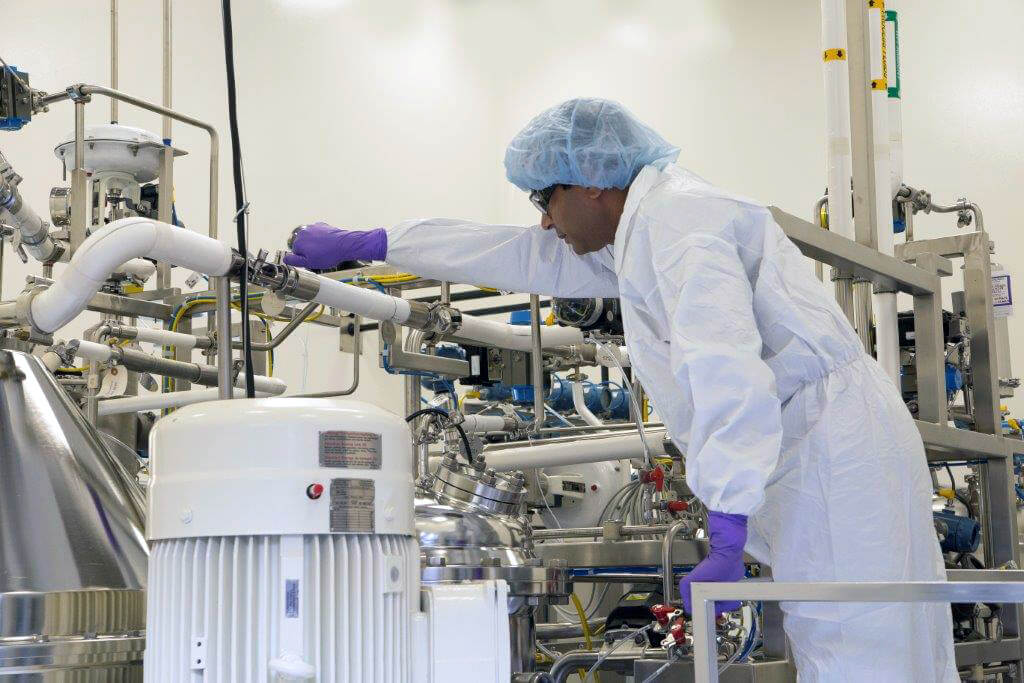
World-Leading Seqirus Flu Vax Factory in NC Makes History -- Again
 |
The billion-dollar cell culture Seqirus vaccine factory in Holly Springs has hit yet another milestone.
The 550 highly skilled Seqirus employees and 150 contract workers at the sprawling factory southeast of Raleigh successfully produced the world’s first cell-based influenza vaccine at commercial scale using a candidate vaccine virus (CVV) that has been isolated and grown in cells, rather than in eggs.
CVVs are prepared by the World Health Organization (WHO) Global Influenza Surveillance and Response System (GISRS) and associated laboratories, and are used by manufacturers to develop and produce influenza vaccines.
The use of cell-derived CVVs, rather than egg-derived CVVs, has the potential to drive improved process control and increased output in the production of cell-based influenza vaccines. In addition, influenza viruses isolated and grown exclusively in cells can be more similar to influenza viruses in circulation.
Since first beginning production in 2014, the Holly Springs site, formerly owned by Novartis, has used egg-derived CVVs in its cell-based manufacturing process. In 2016, the WHO also began to recommend cell-derived CVVs and the U.S. Food and Drug Administration issued an approval for Seqirus to use them in the production of cell-based influenza vaccines at Holly Springs.
NCBiotech played significant role in recruiting factory to Holly Springs
Seqirus is the company minted in 2015 after its Australian parent, CSL, purchased the former Novartis full-scale cell culture manufacturing site and related technology that enables rapidly increased production of flu shots in response to outbreaks or pandemic. The North Carolina Biotechnology Center was actively involved in recruiting the factory to Holly Springs.
The facility, located on 185 acres, encompasses seven buildings connected by a central corridor. The manufacturing center alone encompasses 475,000 square feet -- an area equal to about 10 American football fields.
 |
| Vaccine manufacturing at the groundbreaking Seqirus factory in Holly Springs. -- Seqirus photos |
This year, Seqirus, headquartered in Australia, was successful in using a cell-derived H3N2 CVV in the production of its cell-based seasonal influenza vaccine, making the end-to-end production of this strain exclusively cell-based. The company plans to use cell-derived CVV technology for the production of other vaccine strains produced at the Holly Springs site in the future.
“Cell-based influenza vaccines represent one the most significant advancements in the history of influenza vaccine production,” said Gordon Naylor, President of Seqirus.
“Seqirus is proud to continue to innovate this promising technology as part of our leading role in influenza prevention and pandemic preparedness,” Naylor added. “The successful application of this new technology reflects the deep expertise that exists within Seqirus, developed over our 100-year heritage in influenza. It will improve our overall production process and enhance our ability to deliver on our commitment to public health.”
The Holly Springs facility was purpose-built in partnership the U.S. Biomedical Advanced Research and Development Authority (BARDA) to help combat pandemic threats. This latest milestone is the result of a multi-year collaboration involving the WHO Collaborating Centre for Surveillance, Epidemiology and Control of Influenza at the U.S. Centers for Disease Control and Prevention (CDC), the WHO Collaborating Centre for Reference and Research on Influenza in Melbourne, Australia, and scientists at Seqirus and its predecessor company. The cell-based H3N2 CVV used by Seqirus was developed by the WHO Collaborating Centre in Melbourne from a sample originally obtained from the National Influenza Centre in Singapore.
“This major advancement would not have been possible without significant global collaboration and is a fine example of how industry and public health agencies can work together to better combat influenza,” said Naylor.
VaccinatioNCelebration marked last year's breakthrough
In October 2016 the Biotechnology Center launched the first public flu vaccine clinic in the nation to exclusively highlight Seqirus’ FLUCELVAX QUADRIVALENT flu vaccine, which won FDA marketing approval shortly before NCBiotech announced the VaccinatioNCelebration event.
FLUCELVAX QUADRIVALENT was the first four-strain cell structure-derived inactivated influenza vaccine for adults and children over 4 years of age.
The change to using cells in sterile bioreactors rather than viruses in eggs represents the first major development in influenza vaccine manufacturing technology since vaccine production began in the 1930s. And it’s significant in helping North Carolina to become a world leader in vaccine manufacturing.
CSL, short for Commonwealth Serum Laboratories, was founded in 1916. Now it’s a $45 billion global biotherapeutics company that employs more than 16,000 people and has operations in more than 30 countries.
Seqirus is the world’s second-largest vaccine company with more than 2,000 employees worldwide and a commercial presence in 20 countries.
